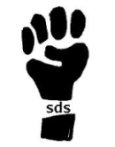Political labels & me
On LewRockwell.com earlier this week, Robert Klassen expressed his discomfort with personally using the libertarian label. Klassen complained that too many people who support electoral politics, the State’s legitimization of its use of force, erroneously call themselves libertarians.
My comrade B.K. Marcus promptly posted a reply to Klassen on his own blog. In brief, Marcus argued that freedom-lovers had already surrendered the word liberal, a label for free-market anti-statists since the 17th century, to authoritarian socialists more than 100 years ago; we shouldn’t do the same with libertarian, despite its association with the disingenuous Libertarian Party. We should instead fight for the label, Marcus wrote, acknowledging that philosophical differences do unfortunately fall under the libertarian umbrella.
When I first joined the libertarian movement more than 30 years ago (just a teen, I was), there was no LP, and being a libertarian implied you were anti-politics (thanks in part to Karl Hess’s seminal 1969 Playboy essay, “The Death of Politics”). Once the party reared its hideous head in 1971, the movement split into two factions -- minarchist (the late Samuel Edward Konkin III’s term for believers in “limited government”) and anarchist (advocates of no government at all). Naturally, the libertarian-anarchist position fell “outside the box” for Big Media, so its spotlight shined almost exclusively on the LP’s libertarian-minarchists. And we free-market anarchists appeared to go underground.
I fall comfortably into the anarchist camp, but I’ve never fully shrugged off the libertarian label. Granted, it’s been corrupted by political hacks -- for chrissakes, even Bill-friggin-Clinton called himself a libertarian -- but I think the label still applies. And I agree with B.K. Marcus that we should fight for it. We should embrace it as a piece of our movement’s history. In fact, we should take back the term liberal, too. As Marcus writes: “The language bandits deserve our resistance!”












